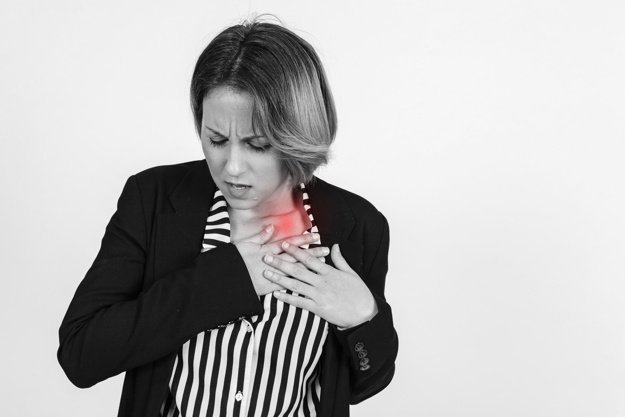
Most people ignore dangerous symptoms that may actually be caused by anxiety
It's a poorly understood condition afflicting many people.
Anxiety disorders have several physical symptoms similar to a mental illness, as reported by Shared.
Someone suffering from an anxiety disorder is not just feeling nervous all the time. He or she also suffers from physical symptoms.
Below are some of these symptoms:
1. Shortness of breath
2. Pounding heart
3. Sweating
4. Dizziness
5. Headaches

Source: Freepik
6. Muscle tension
7. Neck and Back Pain
8. Upset Stomach
9. Acid Reflux
10. Diarrhea
11. Frequent Urination
Being anxious about having these symptoms even worsens these, according to a medical professional.
"The very thought and anticipation of the symptoms can produce anxiety. The feeling itself becomes the threat," said Dr. Emanuel Maidenberg, a professor of psychiatry and biobehavioral sciences.
Anxiety disorder is a tricky condition. It can be hard to diagnose because of the unusual ways it presents itself.
A person suffering from symptoms caused by anxiety disorder may end up seeking frequent medical consultation for seemingly unrelated issues.

Source: Freepik
According to the American Psychological Association, anxiety is an emotion characterized by feelings of tension, worried thoughts and physical changes like increased blood pressure.
"People with anxiety disorders usually have recurring intrusive thoughts or concerns. They may avoid certain situations out of worry. They may also have physical symptoms such as sweating, trembling, dizziness or a rapid heartbeat," APA wrote on its website.
An estimated 40 million adults in the U.S., or 18 percent of the adult population, suffer from an anxiety disorder, according to the Brain and Behavior Research Foundation, citing data from the National Institute of Mental Health.
Affecting about one in 13 people, anxiety is the most common of all mental disorders.
Considering the unusual ways that anxiety disorder presents itself, there's a need to raise awareness of this mental illness. Early diagnosis is key in treating any condition, including an anxiety disorder.
